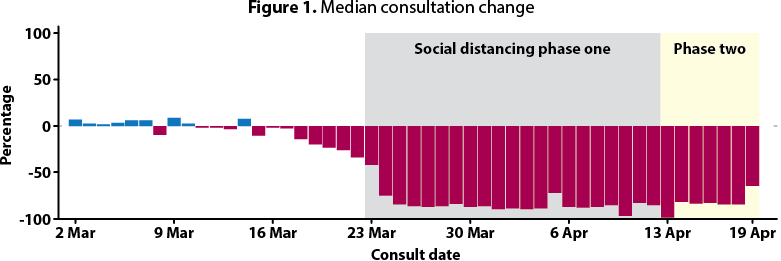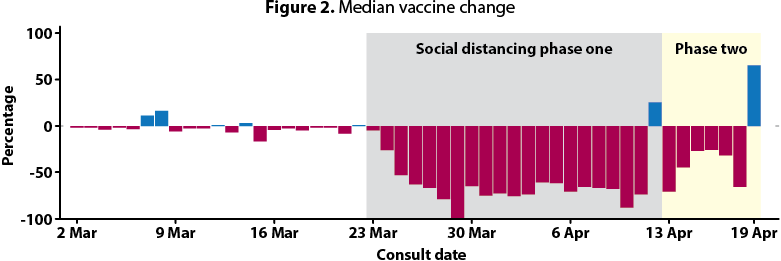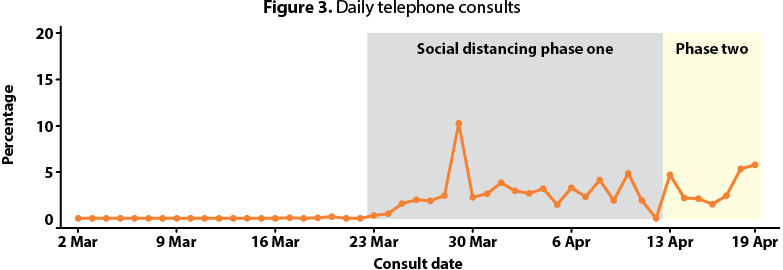1 May 2020
SAVSNET report looks at key areas of companion animal practice – including consultation volumes, vaccinations and telemedicine – and how they have been affected by the lockdown measures.

The Small Animal Veterinary Surveillance Network (SAVSNET) has released an evidence‑based report detailing the impact of COVID‑19 social distancing measures on key areas of companion animal practice.
SAVSNET said it hoped the report may be of value to veterinary professionals trying to use evidence to walk what it describes as “the most difficult of tightropes” between their dual responsibility to preserve animal welfare, while also ensuring the continued health of the public, vet personnel and their families.
The document also includes incidents of common disease in cats and dogs by geographical area that may help GPs make evidence-based risk assessments on the need to vaccinate.
The report featured data collected by SAVSNET from booked veterinary consultations between 2 March and 19 April. The figures were then compared against median 2019 data held by SAVSNET.
• A trend towards decreasing consultation volumes was observed for approximately one week before the Government announced enhanced social distancing measures on 23 March, with a rapid and relatively sustained reduction of between 80% and 90% being recorded within two days of the announcement (Figure 1).

• Approximately 75% reduction in vaccinations primarily taking place following the Government’s social distancing announcement (Figure 2).

• A marked increase in telephone consultations and telemedicine to minimise COVID-19 risk to both staff and clients (Figure 3).

• Following updated RCVS/BVA guidance being implemented on 14 April, a relatively increased percentage of total consultations being primarily for vaccination compared to the prior three weeks, although still reduced compared to “normal” levels.
SAVSNET epidemiologist David Singleton said one standout feature coming out of the report was the profession’s “incredible” ability to adapt to the changes the pandemic had required, while continuing to give the best possible care for animals.
He added that SAVSNET would welcome feedback and questions about the report, which can be emailed.